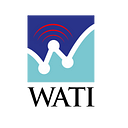Safeguarding Data and Trust: The Importance of SaaS Security in a Connected World
SaaS (Software as a Service) security refers to the measures and practices implemented to protect data, applications, and infrastructure in a SaaS environment. As organizations increasingly rely on SaaS solutions delivered over the internet, it becomes paramount to ensure the confidentiality, integrity, and availability of these services. SaaS security encompasses a wide range of aspects, including data protection, access controls, encryption, vulnerability management, and compliance with industry standards and regulations.
Importance of SaaS Security
Protecting Sensitive Data
One of the primary reasons SaaS security is important is the need to protect sensitive customer data. Many SaaS solutions handle personal information, financial records, or intellectual property, making data protection a top priority. By implementing robust security measures, organizations can safeguard data from unauthorized access, loss, or theft. Data encryption, access controls, and secure data storage practices are crucial in ensuring data confidentiality and integrity within the SaaS environment.
Mitigating Security Risks
SaaS environments are susceptible to various threats, including data breaches, unauthorized access, malware attacks, and service disruptions. Effective SaaS security practices help identify and mitigate these risks. This involves implementing security controls such as firewalls, intrusion detection systems, and anti-malware solutions. Regular vulnerability assessments and penetration testing can identify weaknesses in the system, allowing organizations to proactively address potential security vulnerabilities. Additionally, having an incident response plan in place ensures a swift and effective response to security incidents, minimizing their impact.
Compliance with Regulations and Standards
Compliance with industry regulations and standards is another key driver for SaaS security. Many industries have specific regulations and compliance requirements that organizations must meet. For example, the General Data Protection Regulation (GDPR) in the European Union mandates stringent data protection practices, while the Health Insurance Portability and Accountability Act (HIPAA) in the healthcare industry sets requirements for safeguarding patient data. Adhering to these regulations is not only essential for legal compliance but also demonstrates a commitment to protecting customer data and privacy.
Building Trust and Customer Confidence
SaaS security also plays a crucial role in building trust and customer confidence. Organizations and users rely on SaaS solutions for their critical operations and sensitive data. Implementing strong security measures helps build trust by demonstrating a commitment to protecting customer data and maintaining a secure environment. SaaS providers that prioritize security are more likely to gain customer confidence and encourage user adoption. On the other hand, a security breach or data compromise can lead to severe reputational damage and loss of customer trust.
Ensuring Business Continuity
Business continuity is another important aspect that SaaS security addresses. Downtime or service disruptions can have significant financial and operational implications for organizations relying on SaaS solutions. SaaS security measures, such as implementing backup and disaster recovery strategies, monitoring for potential threats, and having robust incident response plans, ensure that organizations can minimize downtime, quickly recover from security incidents, and maintain uninterrupted service for their customers.
Making Informed Vendor Decisions
In selecting SaaS vendors, organizations need to consider their security capabilities and practices. Conducting due diligence on potential vendors’ security controls and practices is crucial to ensure that they meet the required standards. Assessing factors such as data encryption, access controls, security incident response procedures, and compliance with relevant regulations is essential for making informed vendor decisions.
Continuous Monitoring and Improvement
Furthermore, SaaS security is a continuous process that requires ongoing monitoring, assessment, and improvement. Regular security audits and assessments help identify new vulnerabilities and ensure that security measures are up to date. Security patches and updates should be promptly applied to address newly discovered vulnerabilities and protect against emerging threats. SaaS providers must also stay informed about the evolving threat landscape and adapt their security strategies accordingly.
In conclusion, SaaS security is essential for protecting sensitive data, mitigating security risks, ensuring compliance with regulations, building trust and customer confidence, maintaining business continuity, making informed vendor decisions, and continuously monitoring and improving security measures. By implementing robust security practices, organizations can confidently leverage the benefits of SaaS while minimizing potential security vulnerabilities and threats.
Conclusion
SaaS security plays a critical role in safeguarding data, applications, and infrastructure within a SaaS environment. With the increasing adoption of SaaS solutions, organizations must prioritize security to protect sensitive data, mitigate security risks, comply with regulations, build trust, ensure business continuity, and make informed vendor decisions.
By implementing strong security measures such as data encryption, access controls, vulnerability management, and incident response procedures, organizations can protect sensitive data from unauthorized access, minimize the risk of security breaches, and maintain uninterrupted service for their customers. Compliance with industry regulations and standards helps organizations demonstrate their commitment to data protection and privacy.
SaaS providers must also prioritize continuous monitoring and improvement of security measures. Regular security assessments, vulnerability scanning, and prompt application of security patches and updates are crucial to address emerging threats and vulnerabilities. By staying informed about the evolving threat landscape, SaaS providers can adapt their security strategies to effectively mitigate risks.
Ultimately, SaaS security is a shared responsibility between organizations and SaaS providers. Organizations must conduct due diligence when selecting vendors, ensuring that their security practices align with the required standards. Collaboration and proactive communication between organizations and vendors help establish a secure and trusted SaaS environment.
In summary, by implementing robust SaaS security measures, organizations can confidently leverage the benefits of SaaS solutions while protecting sensitive data, mitigating security risks, ensuring compliance, building trust, and maintaining business continuity. Prioritizing SaaS security is crucial in today’s digital landscape, where data protection and privacy are paramount.
